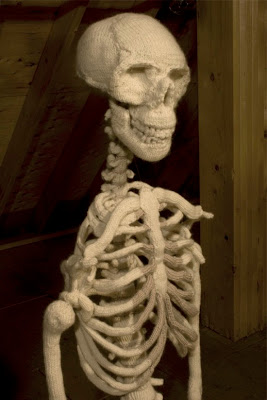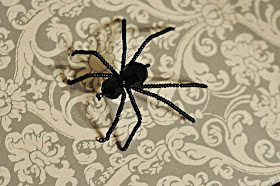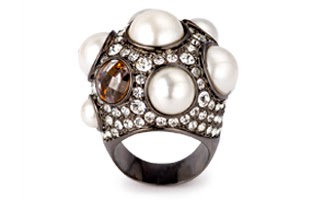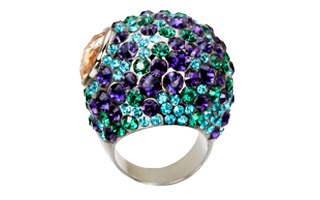I get asked this quite frequently from friends and students. What kind of Sewing machine should I buy? I am talking about home sewing machines not industrial or sergers.
Having years of sewing experiance as well as machine sales I feel it is time I put my knowledge out into the world. Be prepared, this is going to be long and wordy.
The first thing you should know when researching sewing machines is that the price is generally not displayed anywhere. Also if you call into a store 9 times out of 10 they won't tell you a price over the phone. The entire idea is to get you into the store and look it up yourself. Which I understand can be a pain but I think it is neccessary. Sure you can find prices on Walmart, Sam's Club, Joanne's and Target but do you really want a machine from one of those places? I hope you answered No, because that is the right one.
First let me tell you that if you buy a sewing machine from Ebay, or one of those box stores you will not get any help or assistance at all if you are having problems with the machine. You will also lose a quality of service that you get from going to a Local Dealer. Yes I said Dealer. Buying a Sewing machine is much like a car or any other expensive machinery, appliance etc. Don't be fooled thinking it is JUST a sewing machine. They are machines, they can be complicated and they have a lot of parts. You want Quality in a sewing machine the same way you would want quality in anything else in your life, it is an investment and if done properly can be passed on or traded in for a newer shinier model just like a Car.
Realistically to get a decent sewing machine you need to be willing to spend $300 and up. I would suggest starting at $500. You can get a cheapie $100 or $150 machine from a box store but put this into prespective. If you buy a $100 machine anytime it needs service for cleaning and oiling starts at $50. Any major tune ups and repairs will be starting around $125 usually. You have just spent as much money on fixing a crap machine as you did buying a crap machine.
Starting at $300 will get you into the Low range of dealer machines. Going to a dealer is ideal because most of them have all the models available to try out on the floor, they have incentives, free classes that teach you how to use your new machine and extended service warranties or a good relationship with a repairman that you can use. All of these things are great extras that you will be very glad to have at your disposal.
After you have figured out a budget for what you think you want to spend it's time to decide on mechanical or Electronic. A mechanical machine is typically the cheaper of the two but it can also seem archaic to some people. They are a sewing machine in the most simple form with no bells or whistles and limited stitch types. If you were like me and have only used an older model that is mechanical then electronic machines might seem scary even if you are willing to drop $1000 on a machine. Let me tell you Electronic is no more different then going from a typewriter to a keyboard. It does the same things it's just a newer spiffier and more convenient model to get the same job done. Also don't forget that the more money you put into a machine the better the warranties and the more a dealer will help you with it. The other thing to remember about an Electronic machine that when in doubt and you feel confused do the same thing that you do with a computer, turn it off and restart it.
If you have made the decision to join us in the 21st century then you now need to decide if it is going to be just sewing or if you want embroidery/quilting abilities on it also. Usually people are just looking for sewing but if the price you set is right why not get something with a little more oomphf! Embroidery options will include a seperate part which clips into your sewing machine to hold the embroidery hoop. Generally a Embroidery machine will have more functions, a stronger motor and embroidery designs. A quilting and Sewing machine combo will have a stronger motor, sometimes enlarged thoart plate distance, and quilting attachments with some specialy stitches.
If you don't think you are going to use any of these extras then don't worry about it. The thing people will try to do when selling you a machine is showing you everything you COULD do. Focus on what you WANT to do instead. looking at all those bells and whistles and options can be confusing so you need to stay your course for what you NEED.
My best Suggestion is making a list of the things that are important to your sewing. (The following are just suggestions)
1. What do you use the sewing machine for the most? Hems? stuffed toys? full garments?
2. If you are shortening hems/clothes does it have the stitches I need such as blind hem stitch, serger like stitch, basting stitches, zig zag.
3. Do you sew a lot of knits or stretch fabrics or plan to? Does it have stretch knit stitches?
4. Do I care about making button holes? Does it have an easy button hole maker?
5. Does it have a zipper foot that I can use?
6. Can it sew through denim or leather?
7. Does it have decorative stitches for me to make borders in my quilting/projects?
8. Will it work with generic presser feet such as walking foot, piping foot, narrow hemmer foot?
etc etc.
Make your list and stick to your guns when you are shopping.
My Top 3 picks for sewing machine brands are in order Brother, Husqvarna Viking, and Bernina. Other brands include Janome, Singer, Pfaff, White and Kenmore. I know one of the first brands that always pops into people's heads are Singer. Once upon a time Singer was all the rage and it was known for it's quality and reliance. But just like poodle skirts those days are long gone. The only singer I would trust is an older model made in the 70's to early 80's once it hits the 90's I turn away. Urban outfitter's has just picked up an "industrial" singer model but that is a farce. It's just the same plastic parts put into a pretty looking metallic body that makes it heavier but not stronger.
A real industrial Machine looks like this:
Not This:
Back to brands of sewing machines. Brother is my favorite brand currently because they make electronic machines that are simple to use and come with some very convenient features at the lower price points. When Brother first started to make sewing machines they were not very good to be honest. But they revamped the design and technology and associated themselves with Project Runway which pushed them further to be one of the top selling brands out there in my opinion. I like to always suggest the Innvois-80 which is about a $500-$600 machine depending on the dealer you go to, and there are almost always rebates and deals going on for this machine. Also if you are thinking of an embroidery machine Brother is the only licensed by Disney sewing machines which could be important if you are sewing a lot of little kids or just happen to be a fan of disney.

This machine has the ease of a numeric system for choosing stitch types that are easy to see on the LCD screen. It has speed control in a easily visible spot and single stitch back stitch button. It is also the lowest line Brother that has my favorite needle threader option. Not shown there is a stitch plate that comes with the machine that clips to the top handle which shows the variety of stitches and numeric combinations to set the stitches. Other fantastic things is that it has an auto tension adjust, one step easy button hole functionality and serger like stitches to finish you edges if you do not own a serger.
The Little Sister of this machine is the Innovis-40 also a Project Runway exclusive. This machine has also been rated as one of the best sewing machines for your money on
Consumer Reports for the past several years.
This machine has less stitches but they are all visible on the dial turn for changing stitches. Still has speed control, auto tension settings, single backstitch button and a needle threader (but not as good or easy as the 80's). For more Specific information on Brother Machines check out their Website,
Brother USA.
For almost the same price as the Innovis-80 you can get the Brother 900D which is the lowest line Embroidery Machine that Brother has. I can do all the same sewing as the innovis-80 but it has the detachable embroidery bed, it comes with Scissors function which when pressed cuts and ties your thread off at that stitch. It also does not have the extra stitch plate, with it's larger LCD screen all the stitches are visible to scroll through.

My next favorite Brand is Husqvarna Viking. They have always been known for quality reliable machines and some of the most consistant and straight stitches in the market. If I am suggesting a machine to someone who wants a mechanical machine it will be a Viking. The lowest line I would suggest is the Emeralds 116 or 118. They look incredibly similar but there are some slight differences mainly the stitch types. This is a very basic machine with a great heavy motor to get through denims. It has a more simplied needle threader and an easy to see back stitch lever.
If you want to still stay low range but get an electronic version there is the Emerald 203. With the LCD screen you can see the stitches it also suggests which presser foot to use, has the auto tension settings, ruler on the front of the machine and a small pull out guide on the bottom to suggest what stitch to use with what type of fabric and needle.
Lastly is Bernina, To be honest I don't know much about Bernina I can only go on the comments and advice of other long time sewing companions and from the little bit of testing I have done on their machines. From what I have seen it is a soild machine company with the same bells and whistles as the Viking or Brother. It seems to be a little more of a compact machine from the way it is set up, which can be a plus if you are working in a small work space or want it to be more easily stored.
Bernette is the lower line of the series and mostly mechanical models which could be good for a highschool or very occasional sewing but my preference would be to get something from the Activa or 3 Series.
I hope that this lengthy report has helped you to decide and figure out which machine is the best for you and where you want to end up. Do not forgot that the dealer that you buy a sewing machine from can be just as important as the machine itself. Their service to you could be worth more then the actual brand itself because they will be helping you to learn this machine and with your future purchases regarding attachments and classes.
For my Columbus readers I would Highly recommend that you go into Westerville Sew and Save and sit a bit with Susan regarding her Janome and Brother Machines. Even though I have no bought a sewing machine from her myself she has helped many of my students find just the right sewing machine for themselves.













































